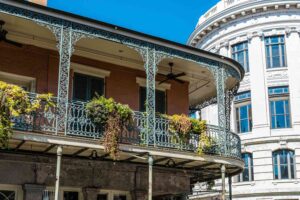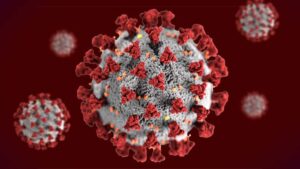New Orleans: A Brief Visit; Rekindled Affection

K and I flew in from LA after visiting some of the grandkids to celebrate our anniversary and take another look at a city we’ve always enjoyed.
We hadn’t been here in 12 years. In that time, the city was devastated by Hurricane Katrina, then pounded again by several other hurricanes, and then economically strangled by the COVID shutdown. Not to mention the usual political corruption and bureaucratic incompetence. New Orleans has a reputation for being dangerous, although, like most cities of its size, most of the crime takes place in drug-dominated neighborhoods. As a tourist, as long as you don’t wander into an obviously bad neighborhood, drunk and alone, at night, the Crescent City is safe and welcoming.
The city’s economic poverty is evident in the degenerate state of the roads and sidewalks and the condition of its public buildings. But that is more than offset by its rich social and cultural history, which is still very much present in the diversity of its architecture, customs, cuisine, and populations. A visitor can see the footprints of the American, Spanish, and French colonizers, the African slaves and freemen, the Creoles and the Cajuns. Not to mention the many other cultures that immigrated into the city over the last 150 years and became part of its local color and heritage. I love New Orleans for all of that.
Another reason I love New Orleans is the food and drink. As far as food is concerned, New Orleans reminds me most of Rome. Its restaurants favor common, vernacular cuisine. And, like Rome, you don’t need a guidebook to locate a good restaurant. They are ubiquitous. If the joint looks interesting and reasonably clean, it’s pretty much guaranteed to serve a good meal.
There was a time in my life when an evening in New Orleans was about drinking on Bourbon Street until I could barely walk home. This week, K and I were glad to discover that the city is replete with interesting and even elegant bars and lounges that serve up all sorts of fun and tasty specialty cocktails that are not meant to knock you off your barstool. And the wine lists are not just extensive and well curated, the prices are generally very good.
New Orleans is the heart of southern jazz and plenty of other forms of American music, too. On any given night, there are literally hundreds of places you can go to listen to great music, not to mention the street corners where buskers play for change.
And finally, New Orleans has this tradition of not taking itself too seriously. It’s about “Where is the party today?” And that Mardi Gras impulse manifests itself every day in the French Quarter where it is no longer possible to distinguish oneself by sporting a handlebar mustache along with eye shadow and a tutu. “Relax,” the city says. “We’ve got you covered.”
I don’t know why I’m telling you all this. I suppose it’s because, in coming here this time, I’ve been reminded of how much I love this city. And in case you’ve never been here or, like me, it’s been a dozen or more years, to encourage you to check it out.
 MarkFord
MarkFord











